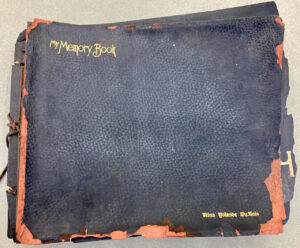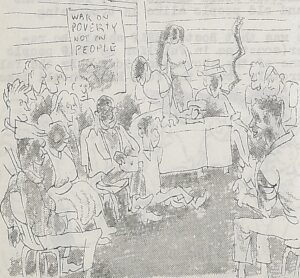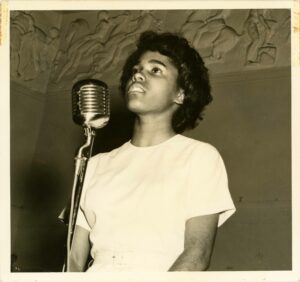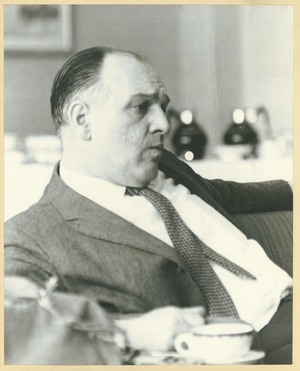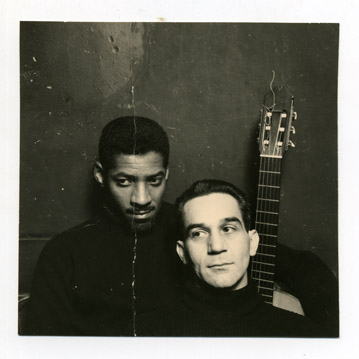Yolande Du Bois Scrapbook Collection
Nina Yolande Du Bois (1900-1961), better known as Yolande Du Bois, was an American teacher best regarded for her contributions to the Harlem Renaissance. Her father was sociologist and civil rights activist W.E.B. Du Bois and her mother was Nina (née Gomer) Du Bois. She was born on October 21, 1900, in Great Barrington, Massachusetts. She faced many health-related issues in her early childhood and also quarreled often with her parents. In her early adulthood, she enrolled at Fisk University in 1920 and graduated in 1924. While attending Fisk, she was in a relationship with Jimmie Lunceford, a prominent jazz musician. At her father’s insistence, she ended her relationship with Lunceford and would later go on to marry acclaimed Harlem Renaissance poet Countee Cullen on April 9, 1928. Their highly-publicized wedding was the talk of many African-American socialites at the time, with every minor detail recorded by the press. However, Yolande and Countee soon grew distant in their marriage, resorting to counseling at first and then divorce following Countee’s coming out as gay to Yolande. With the divorce finalized in the spring of 1930, Yolande chose to pursue higher education and rewrite the course of her life.
After a period of illness, she began to teach English and history at Dunbar High School in Baltimore, Maryland. There, she met Arnette Franklin Williams, whom she married in September 1931 and then later divorced in 1936. She had one daughter with Williams, Yolande Du Bois Irvin Williams, whom she took care of following the divorce. However, during this period, Yolande also moved to New York City with her mother, where she began to take courses at Columbia University’s Teachers College, eventually earning her master’s. She then continued to work as a teacher and to raise her daughter in Baltimore until her death in March 1961. She was survived by her father and her daughter.
Yolande’s scrapbooks, photo albums, and other personal artifacts from her youth (approximately 1915-1929) reflect her travels, undergraduate experiences at Fisk University, outings with her family and friends, artistic pursuits, and more. These scrapbooks showcase trips to England, France, Switzerland, and elsewhere in Europe, across Tennessee, Virginia, Maryland, and New York, as well as other sites of importance in her life. These scrapbooks capture snapshots of her time at Fisk University, from breakups to athletic events, and from classical music concerts to Zeta Beta Phi rush week materials. Each scrapbook showcases a different aspect of Yolande’s late teenage life as well as her early adulthood, coupled with notes, sketches, and illustrations from friends, postcards and fliers from all over the United States and Europe, and her personal takes on the world around her.


